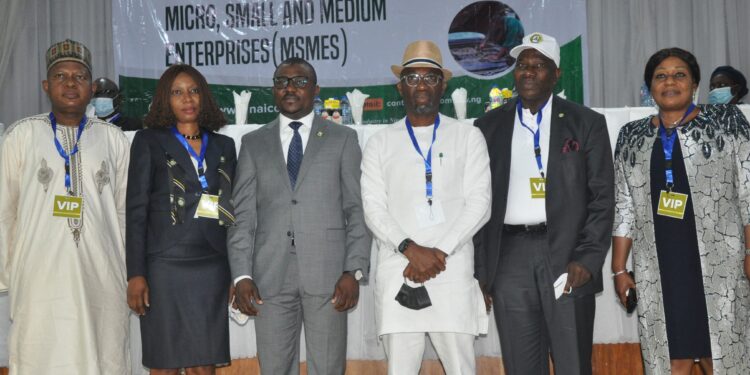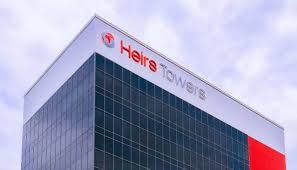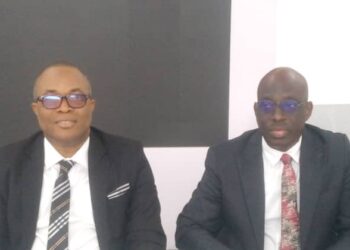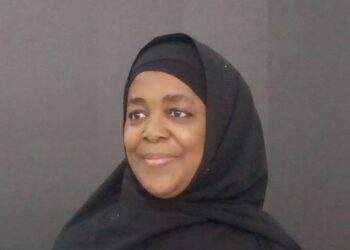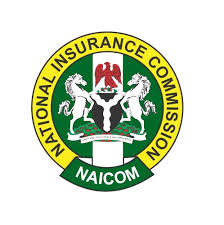“Insurance is that product you buy when you think you do not need it because it may be too late to buy it when the need for it arises.” This is one of the nuggets in the welcome remarks of the Commissioner for Insurance, Mr. Sunday Thomas at the sensitisation workshop on insurance for micro, small and medium enterprises MSMEs held today in Lagos.
The open flanks remark of the National Insurance Commission CEO also received with open arms a new segment ostensibly carved out from micro class of enterprise, the Nano, which looks after the 1-3 persons business size funded with N1- N1million. It was created by the Lagos Chamber of Commerce and Industry to take care of all cadre of businesses, reckon and make sure that policies are made to cater for all without any chance of assumption.
Bringing the (N)MSMEs into the foreground, Thomas precisely delineated their importance to national development insisting it cannot be overstated; he classified it as the “fulcrum of a nation’s growth and development.” In addition, “MSMEs form the superstructure to stimulate mass enterprise growth and serve as a livelihood for the base of the pyramid population across all economies be it underdeveloped, emerging or frontier markets.”
With this in mind, he said there are sustained development interventions focused on enabling MSMEs “sprout and flourish but unfortunately, with little or no insurance content to deal with associated risks and ensure sustainability and guarding them against failure,” would come failed enterprise without insurance as a risk management standard purchased for business sustainability.
The MSMEs superstructure endorsement has a rolling coaster effect and captured in this is the National Bureau of Statistics assigning 48% average contribution to the gross national product GDP in the last five years from a total of about 17.4 million enterprises (NBS 2019.) They account for about 50% of industrial jobs and nearly 90% of activities in the manufacturing sector.
Despite the high score in GDP, Thomas suggests it could be higher but for the infrastructure and funding challenges which is simultaneously rolling with the government policy to remove 100 million Nigerians from the clutches of poverty in the next ten years. He said the headwind to create that prosperity is the spirit of entrepreneurship of Nigerians driving creativity and productivity.
However, as a risk consultant not only to federal government but to Nigerians at large, Thomas said whatever progress entrepreneurs make could be “halted abruptly in the face of a natural or man-made disaster which can often prove daunting to surmount without any support. He continues, “In particular, when MSMEs are affected by any mishap, the disruption produces not only direct business losses, but also indirect losses and economic ripple effects. The range of impact include job losses, debt overhang, and a relapse of households into extreme poverty.
However, he said deliberate risk management adoption could douse the vulnerability of human endeavours and, in spite of dark shadows, give “confidence to venture.”
Beyond what insurance could do to sustain wealth creation, he is apt to cite a major slower of the importance of insurance as an ally for endeavours. “Notwithstanding the importance of insurance to lives and property, adoption and penetration have been low in Nigeria owing largely to a lot of challenges principal of which may be the inadequate product offerings that meet the needs of the consumers including the MSMEs,” he stated.
The CFI said the Commission is not stunned and immobile in the face of low penetration but it is turning things around by licencing microinsurance and takaful insurance companies for affordability and inclusiveness to bring the excluded contributors to the economy – the MSMEs; and, the sensitisation workshop is another undertaken to drive enrolment for insurance products.
Horning the success recorded in the previous locations of Kano, Kaduna, and Abuja, he said Lagos state is a key stop for obvious reasons: first, Lagos is the nerve centre of commerce, the state hosts the single largest number of MSMEs in the country, put at 11.5% of total. (NBS 2019). Second, and more important, the current and past administrations of this state have demonstrated a continuous commitment to sustaining MSME growth.

He numerated several only-in-Lagos strides which he said, “represent to us both the will and action to engender MSME growth.”
He reiterated the vulnerability of MSMEs becoming extinct by both natural and man-made disasters, as very high: his example was the level of destruction during the #EndSARS protest which may have killed some MSMEs and driven some persons further down the poverty line.
Hoping that Nigerians especially those the Lagos workshop is meant for do not continue to ignore insurance as the maiden of commerce, he gives his pledge, “The good thing which is our message to you today is that insurance will provide you the shock-absorber to withstand any of these unforeseen calamities when they do occur and help your reinstatement in business.”
On the policyholders bottom line: claims payment, Thomas makes a firm promise, “The NAICOM is committed to our mandate of providing diligent oversight to the insurance sector towards ensuring prompt settlement of genuine claims when insured event occurs.”
Once again he recalls the importance of a critical sector like the MSMEs and was bare, “I dare say that the MSMEs sector is too important to be neglected as it is key to economic development of the nation and thus, must be guided and protected against failure. The encouraging responses validate that the products meet a critical need also that the appetite for players in the MSMEs sector to succeed sustainably is high.”


